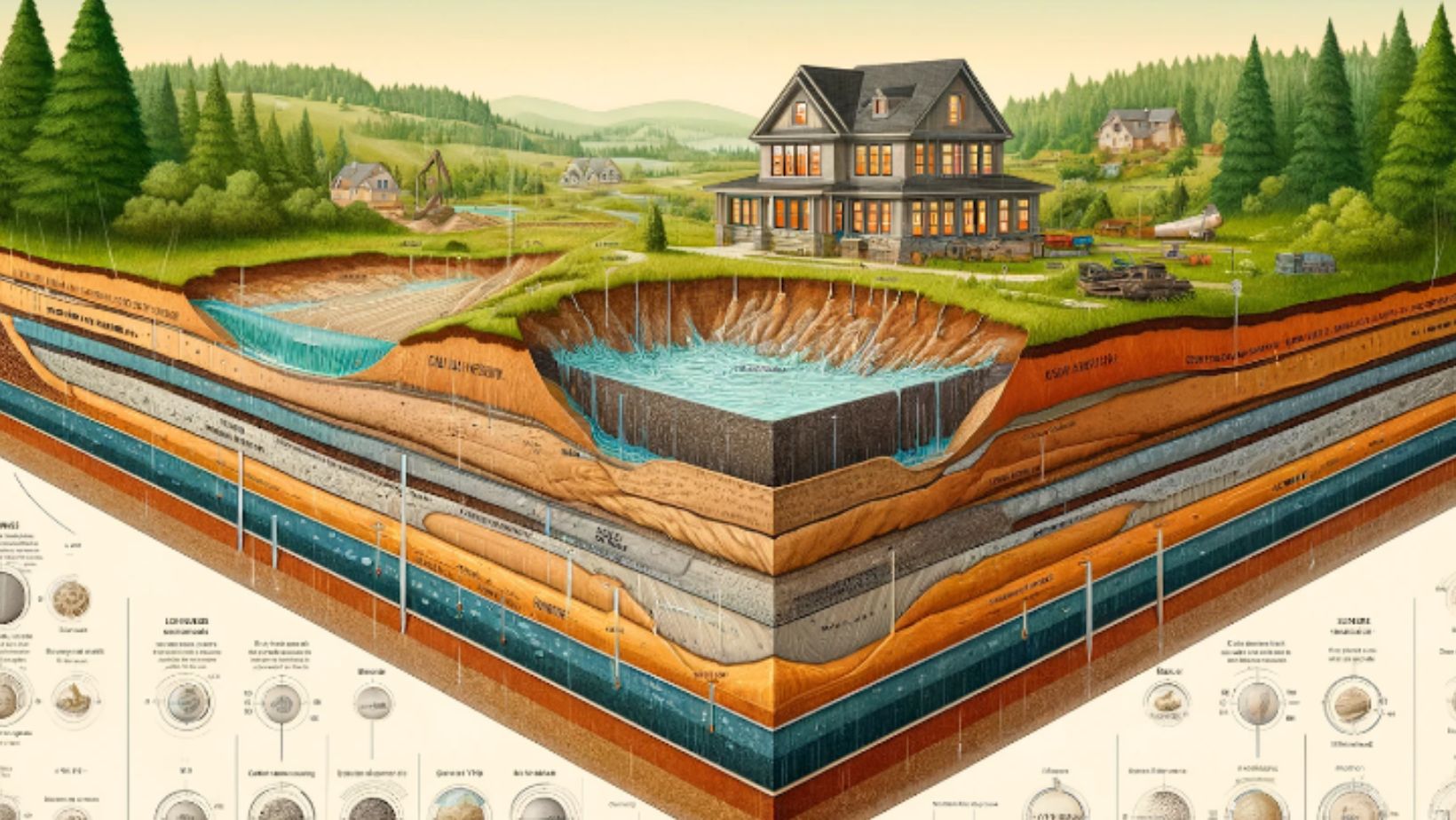
In North Carolina, the importance of understanding soil conditions cannot be overstated when it comes to concrete installation. These conditions have a notable impact on the construction and longevity of concrete structures, making them a crucial factor in the overall success of a project. Soil types such as sand, clay, and loam play an essential role in determining the foundation needed for optimal concrete performance.
One prevalent industry for concrete installation includes the marble and stone sector, where various structures and surfaces require a strong and durable foundation. In this area, professionals such as NC concrete installation contractors work meticulously to ensure that their clients receive the highest quality installation possible. This level of expertise extends to not only selecting the appropriate concrete mixture but also taking into consideration environmental factors that may influence the durability and stability of the foundation.
In the realm of construction, a well-executed concrete installation is crucial to the overall longevity and integrity of any structure. By paying close attention to the soil conditions, especially in the diverse landscape of North Carolina, contractors can provide their clients with the appropriate foundation to ensure the long-term success of their projects, taking into account both practical and environmental factors.
Assessing Soil Conditions in NC for Concrete Installation
Importance of Soil Testing and Soil Analysis
In the context of concrete installation, soil testing, and soil analysis are essential steps in ensuring a strong and stable foundation for structures. These tests aid in determining the soil strength, compressibility, and other vital parameters that impact the performance and durability of the foundation. By evaluating soil characteristics like moisture content and dry density, engineers and architects can design concrete foundations that meet the specific requirements of the site and comply with the established specifications and quality control standards. Comprehensive geotechnical investigations are vital to understand site conditions and determine suitable foundation options for a project.
Types of Soils and Their Impact on Foundations
There are several types of soils that can be found in NC and have a considerable impact on the design of foundations. These include:
- Expansive soils: These soils swell when they absorb water, causing significant volume changes that can exert pressure on foundation elements, leading to structural damage.
- Compacted soils: While these soils provide increased bearing capacity, they can be susceptible to settlement if not adequately compacted.
- Granular soils: These soils, including sand, have excellent drainage properties and are often suitable for well-designed foundation systems. For instance, sharp sand provides better bonding with cement compared to rounded sand in concrete mixtures, resulting in improved strength.
- Cohesive soils: Clay and other cohesive soils often have high compressibility, making them less suitable for foundation systems without adequate stabilization measures.
Soil Stabilization Techniques and Material Selection
Soil stabilization techniques improve the characteristics of problematic soils, enhancing their ability to support structure foundations. Some common soil stabilization methods include:
- Chemical stabilization: This technique involves the addition of binding agents to alter the soil’s properties, such as lime or cement, to increase strength and reduce compressibility.
- Mechanical stabilization: This method compacts the soil, increasing its density and bearing capacity. A foundation drain with gravel or crushed stone must be placed around the perimeter to enhance the soil’s drainage capability, as stated in the North Carolina Building Code.
- Geosynthetics: Geotextiles, geogrids, or geomembranes can be used to improve the soil’s strength or provide separation and filtration functions.
By understanding the soil conditions and selecting suitable stabilization techniques and materials, engineers and architects can design foundations that effectively support the structure while mitigating potential long-term issues due to varying soil properties.
Design and Engineering of Concrete Installations in Response to Soil Conditions
Structural Integrity and Load Considerations
The engineering properties of soil play a critical role in determining the design and construction of concrete installations such as building foundations and retaining walls. Soil conditions in North Carolina can vary greatly, and engineering measures need to be taken to ensure the structural integrity of concrete installations. Foundation needs are determined based on factors such as the soil type, compressive strength of the concrete, and the anticipated loads that the foundation will support.
Lateral forces and surcharge loads also need to be taken into consideration when designing concrete structures. To address these issues, vertical reinforcements and load-bearing walls are typically incorporated into the design to mitigate the risks associated with varying soil conditions.
A critical parameter in evaluating soil is its shear strength, which directly influences the stability of the structure, especially in cases where retaining walls are necessary. Additionally, compressive strength is crucial in determining the quality of the concrete and its ability to support the design loads.
Compliance with Building Codes and Standards
It is essential for concrete installations to comply with building codes and standards such as ACI 318 and ASCE 7 to ensure safety and durability. These codes cover factors such as earthquake and wind loads, specific gravity of the soil, and seismic design categories.
In North Carolina, areas with high seismic design categories, such as Category D, require special consideration when it comes to designing concrete foundations and retaining walls. This involves taking measures to increase the structure’s lateral force resistance and provisions for deep foundations when necessary.
Practical Issues and Preventative Solutions for NC Soil Conditions
North Carolina’s soil conditions can present a number of practical issues that need to be addressed during the design and construction of concrete installations. One common problem is soil erosion, which can undermine the foundation and lead to structural instability. To address this issue, proper grading techniques and drainage systems should be implemented to minimize the adverse effects of water on the soil structure.
Another key factor to consider is the soil’s moisture content, which can change due to environmental factors such as temperature and rainfall. When the moisture content of the soil changes, it can cause shrinkage or expansion, thereby affecting the concrete slab and overall structural integrity.
Soil stabilization methods, such as the use of cement, are employed to increase the shear strength of the soil and reduce the likelihood of issues related to liquefaction and settlement. Another technique commonly used in NC is the installation of isolated footings with adequate wall height. This can help distribute loads more evenly across the soil, reducing the risk of potential structural failure.
Understanding the soil conditions in North Carolina and appropriately addressing them in the design and engineering stages is vital to ensuring the long-term stability and durability of concrete installations. By considering factors such as soil properties, engineering principles, and compliance with relevant building codes and standards, stakeholders can make informed decisions that lead to safe and robust concrete structures.
In Conclusion
Assessing soil conditions is a vital aspect of concrete installation in North Carolina. Soil evaluations help determine the most suitable materials and construction techniques for a particular project. Examples of possible soil types in the region include clay, sand, and silt, each with its unique impact on concrete.
Soil tests are crucial for identifying potential issues related to soil conditions, such as expansive clay or poor drainage. These tests ensure that contractors choose appropriate solutions, such as using specialty soils or implementing proper drainage systems. Recognizing the potential effects of vegetation is also important, as certain plants can influence soil properties.
Foundation design must take into account possible soil changes over time. Nearby construction projects, environmental factors, and seasonal variations can impact soil conditions; therefore, ongoing monitoring and regular maintenance are essential for lasting concrete installations.
The importance of soil evaluation in North Carolina cannot be overstated. Ensuring adequate preparation and analysis reduces the risk of structural issues, maximizes concrete performance, and ultimately promotes overall project success. Careful consideration of these factors will lead to more informed decisions, enabling tailored solutions to fit the unique requirements of any concrete installation project.








